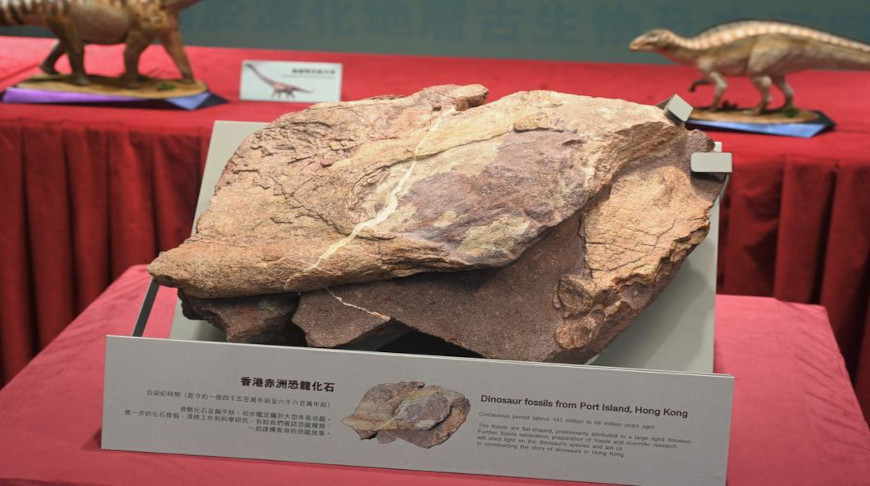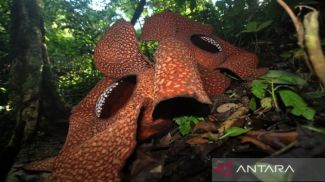
HONG KONG, 25 October (BelTA - China Daily) - The Hong Kong Special
Administrative Region (HKSAR) government on Wednesday announced that
dinosaur fossils were discovered for the first time in Hong Kong.
The site where the dinosaur fossils were discovered was on Port Island in the Hong Kong UNESCO Global Geopark in the northeastern waters of Hong Kong.
The Antiquities and Monuments Office (AMO) of the HKSAR government was informed in March this year that the sedimentary rock on Port Island might contain suspected vertebrate fossils.
The Development Bureau of the HKSAR government then commissioned experts from the Institute of Vertebrate Paleontology and Paleoanthropology (IVPP) of the Chinese Academy of Sciences (CAS) to come to Hong Kong to conduct field investigation, study fossil specimens, recommend management plans and discuss follow-up actions.
It was initially confirmed that the fossils dated to the Cretaceous period (about 145 million to 66 million years ago).
Bernadette Linn, secretary for development of the HKSAR government, said that the discovery is of great significance and provides new evidence for research on palaeoecology in Hong Kong.
The follow-up research on the dinosaur fossils is the first cooperation project under a new agreement between Hong Kong and the mainland.
The Development Bureau of the HKSAR government and the IVPP on Wednesday signed the Framework Agreement on Deepening Exchange and Collaboration regarding Stratigraphy, Palaeontology and Prehistoric Sites to conduct scientific research, specimen management and identification, training, and exchanges in the fields of palaeontology, palaeoanthropology and palaeolithic sites.
The site where the dinosaur fossils were discovered was on Port Island in the Hong Kong UNESCO Global Geopark in the northeastern waters of Hong Kong.
The Antiquities and Monuments Office (AMO) of the HKSAR government was informed in March this year that the sedimentary rock on Port Island might contain suspected vertebrate fossils.
The Development Bureau of the HKSAR government then commissioned experts from the Institute of Vertebrate Paleontology and Paleoanthropology (IVPP) of the Chinese Academy of Sciences (CAS) to come to Hong Kong to conduct field investigation, study fossil specimens, recommend management plans and discuss follow-up actions.
It was initially confirmed that the fossils dated to the Cretaceous period (about 145 million to 66 million years ago).
Bernadette Linn, secretary for development of the HKSAR government, said that the discovery is of great significance and provides new evidence for research on palaeoecology in Hong Kong.
The follow-up research on the dinosaur fossils is the first cooperation project under a new agreement between Hong Kong and the mainland.
The Development Bureau of the HKSAR government and the IVPP on Wednesday signed the Framework Agreement on Deepening Exchange and Collaboration regarding Stratigraphy, Palaeontology and Prehistoric Sites to conduct scientific research, specimen management and identification, training, and exchanges in the fields of palaeontology, palaeoanthropology and palaeolithic sites.













